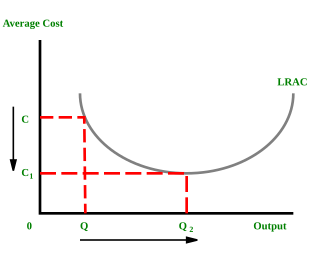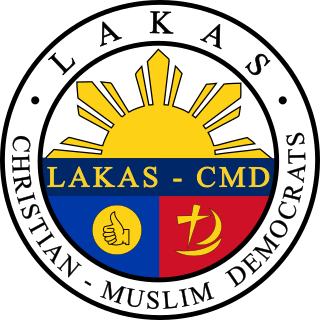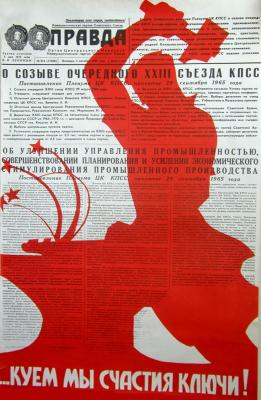
In microeconomics, economies of scale are the cost advantages that enterprises obtain due to their scale of operation, and are typically measured by the amount of output produced per unit of time. A decrease in cost per unit of output enables an increase in scale. At the basis of economies of scale, there may be technical, statistical, organizational or related factors to the degree of market control. This is just a partial description of the concept.
A variety of measures of national income and output are used in economics to estimate total economic activity in a country or region, including gross domestic product (GDP), gross national product (GNP), net national income (NNI), and adjusted national income. All are specially concerned with counting the total amount of goods and services produced within the economy and by various sectors. The boundary is usually defined by geography or citizenship, and it is also defined as the total income of the nation and also restrict the goods and services that are counted. For instance, some measures count only goods & services that are exchanged for money, excluding bartered goods, while other measures may attempt to include bartered goods by imputing monetary values to them.

Import substitution industrialization (ISI) is a trade and economic policy that advocates replacing foreign imports with domestic production. It is based on the premise that a country should attempt to reduce its foreign dependency through the local production of industrialized products. The term primarily refers to 20th-century development economics policies, but it has been advocated since the 18th century by economists such as Friedrich List and Alexander Hamilton.

Lakas–Christian Muslim Democrats, abbreviated as Lakas–CMD and popularly known as Lakas, was a political party in the Philippines. Its ideology and that of its successor is heavily influenced by Christian and Islamic democracy. The party's influence on Philippine society is very strong, especially after the People Power Revolution, which has led the country to elect two presidents from the party, namely Fidel V. Ramos, a United Methodist, and Gloria Macapagal Arroyo, a Roman Catholic.
In the mid-1980s, Communist Czechoslovakia was prosperous by the standards of the Eastern Bloc, and did well in comparison to many richer western countries. Consumption of some goods like meat, eggs and bread products was even higher than the average countries in Western Europe, and the population enjoyed high macroeconomic stability and low social friction. Inhabitants of Czechoslovakia enjoyed a standard of living generally higher than that found in most other East European countries. Heavily dependent on foreign trade, the country nevertheless had one of the Eastern Bloc's smallest international debts to non-socialist countries.
Productivity is the efficiency of production of goods or services expressed by some measure. Measurements of productivity are often expressed as a ratio of an aggregate output to a single input or an aggregate input used in a production process, i.e. output per unit of input, typically over a specific period of time. The most common example is the (aggregate) labour productivity measure, one example of which is GDP per worker. There are many different definitions of productivity and the choice among them depends on the purpose of the productivity measurement and data availability. The key source of difference between various productivity measures is also usually related to how the outputs and the inputs are aggregated to obtain such a ratio-type measure of productivity.
In Marxian economics, economic reproduction refers to recurrent processes. Michel Aglietta views economic reproduction as the process whereby the initial conditions necessary for economic activity to occur are constantly re-created. Marx viewed reproduction as the process by which society re-created itself, both materially and socially.
In economics, total-factor productivity (TFP), also called multi-factor productivity, is usually measured as the ratio of aggregate output to aggregate inputs. Under some simplifying assumptions about the production technology, growth in TFP becomes the portion of growth in output not explained by growth in traditionally measured inputs of labour and capital used in production. TFP is calculated by dividing output by the weighted geometric average of labour and capital input, with the standard weighting of 0.7 for labour and 0.3 for capital. Total factor productivity is a measure of productive efficiency in that it measures how much output can be produced from a certain amount of inputs. It accounts for part of the differences in cross-country per-capita income. For relatively small percentage changes, the rate of TFP growth can be estimated by subtracting growth rates of labor and capital inputs from the growth rate of output.
Net output is an accounting concept used in national accounts such as the United Nations System of National Accounts (UNSNA) and the NIPAs, and sometimes in corporate or government accounts. The concept was originally invented to measure the total net addition to a country's stock of wealth created by production during an accounting interval. The concept of net output is basically "gross revenue from production less the value of goods and services used up in that production". The idea is that if one deducts intermediate expenditures from the annual flow of income generated by production, one obtains a measure of the net new value in the new products created.
Factor Ten is a social and economic policy program developed by the Factor Ten institute with the stated goal of "provid[ing] practical support for achieving significant advances in sustainable value creation, in particular through increases in resource productivity throughout the economy.
Production is the process of combining various inputs, both material and immaterial in order to create output. Ideally this output will be a good or service which has value and contributes to the utility of individuals. The area of economics that focuses on production is called production theory, and it is closely related to the consumption theory of economics.
Sustainability metrics and indices are measures of sustainability, and attempt to quantify beyond the generic concept. Though there are disagreements among those from different disciplines, these disciplines and international organizations have each offered measures or indicators of how to measure the concept.

The 1965 Soviet economic reform, sometimes called the Kosygin reform or Liberman reform, was a set of planned changes in the economy of the USSR. A centerpiece of these changes was the introduction of profitability and sales as the two key indicators of enterprise success. Some of an enterprise's profits would go to three funds, used to reward workers and expand operations; most would go to the central budget.

The Kabalikat ng Malayang Pilipino (KAMPI), formerly known as the Kabalikat ng Mamamayang Pilipino, was a political party in the Philippines. It is the main party of former President Gloria Macapagal Arroyo. In June 2008, Kampi merged into the Lakas–CMD.
The National Economic Protectionism Association (NEPA) is the oldest local non-government organization in the Philippines having been established in 1934. The non-government organization was established by Filipino industrialists with the intention of protecting domestic industries, owned by Filipinos, against dominion by foreign interests and competition. Through the years of its existence, it has gone through a number of leadership changes and policy tacks. During its heyday, its leaders held key positions in the government and were actively promoting Filipino industries. It has offices at Francesca Towers, along Epifanio de los Santos Avenue (EDSA) in Diliman, Quezon City. In the 21st century, NEPA is under revitalization with mass organizing and networking with other Filipino organizations. From local organizations of small and medium enterprises (SMEs) and Filipino industrialists to inventors societies and producers. From a network of nationalist government officials and employees to ordinary Filipino consumers. It is a registered non-stock, non-profit private organization founded by 15 pioneering Filipino entrepreneurs and industrialists. NEPA has always been an active participant in the formulation of national economic policies. NEPA fosters the spirit of economic nationalism and national industrialization, and promotes the protection of Filipino interests in the country's polity, economy, culture and environment.
The balanced growth theory is an economic theory pioneered by the economist Ragnar Nurkse (1907–1959). The theory hypothesises that the government of any underdeveloped country needs to make large investments in a number of industries simultaneously. This will enlarge the market size, increase productivity, and provide an incentive for the private sector to invest.

In economic and environmental fields, decoupling refers to an economy that would be able to grow without corresponding increases in environmental pressure. In many economies, increasing production (GDP) raises pressure on the environment. An economy that would be able to sustain economic growth while reducing the amount of resources such as water or fossil fuels used and delink environmental deterioration at the same time would be said to be decoupled. Environmental pressure is often measured using emissions of pollutants, and decoupling is often measured by the emission intensity of economic output. However, it is arguable that emission intensity does not adequately reflect the exponential impact on the instability of ecosystems when climate tipping points are passed. During the 2023 World Economic Forum Johan Rockstrom explained that the exponential domino effect has now commenced.
Sustainable Materials Management is a systemic approach to using and reusing materials more productively over their entire lifecycles. It represents a change in how a society thinks about the use of natural resources and environmental protection. By looking at a product's entire lifecycle new opportunities can be found to reduce environmental impacts, conserve resources, and reduce costs.
A circular economy is an alternative way countries manage their resources, where instead of using products in the traditional linear make, use, dispose method, resources are used for their maximum utility throughout its life cycle and regenerated in a cyclical pattern minimizing waste. They strive to create economic development through environmental and resource protection. The ideas of a circular economy were officially adopted by China in 2002, when the 16th National Congress of the Chinese Communist Party legislated it as a national endeavour, though various sustainability initiatives were implemented in the previous decades starting in 1973. China adopted the circular economy due to the environmental damage and resource depletion that was occurring from going through its industrialization process. China is currently a world leader in the production of resources, where it produces 46% of the worlds aluminum, 50% of steel and 60% of cement, while it has consumed more raw materials than all the countries a part of the Organisation for Economic Co-operation and Development (OECD) combined. In 2014, China created 3.2 billion tonnes of industrial solid waste, where 2 billion tonnes were recovered using recycling, incineration, reusing and composting. By 2025, China is anticipated to produce up to one quarter of the worlds municipal solid waste.

The National Competitiveness Council (NCC) is a public-private body that develops strategy for the long-term competitiveness of the Philippines through policy reforms, project implementation, institution building, and performance monitoring.






